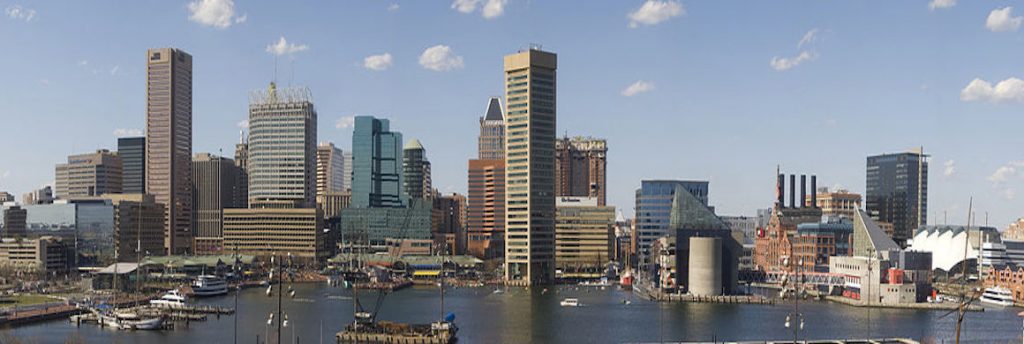It may not be New York or San Francisco, but Baltimore is gaining a reputation as a hotbed for startups and entrepreneurs.
Last year, Entrepreneur Magazine placed Baltimore second on a list of “Hot Startup Cities That Aren’t San Francisco or New York,” emphasizing its concentration of companies working in the education field.
The city itself boasts resources for budding entrepreneurs as well. Baltimore is home to the Emerging Tech Center, a business incubator for tech startups, and also features the Baltimore Development Corporation, which offers low-interest loans to small businesses, usually in the $50,000 to $100,000 range.
Baltimore is also home to several top-notch business schools, each with their own resources for students who choose to go their own way and become entrepreneurs.
Johns Hopkins Carey School of Business
The Carey School offers students in both its Global and Flexible MBA programs the opportunity to concentrate on entrepreneurship.
The Johns Hopkins Flexible MBA program at Carey is designed to be completed over three academic years, although students can take up to six years to complete their degree. The Flexible MBA incorporates business foundations courses, followed by course work in one of nine concentrations, among them entrepreneurship.
The Johns Hopkins Global MBA program at Carey offers primarily daytime and evening classes at the Baltimore campus. Carey offers one intake per year, and classes begin during the fall semester. During the summer between the first and second years of the program, students take part in a three-week Innovation for Humanity program, traveling to different countries across the globe to work collaboratively with local entrepreneurs and community leaders.
The University of Baltimore (UB) supports the entrepreneurial efforts of its students through the University of Baltimore Center for Entrepreneurship and Innovation. According to UB, the Center for Entrepreneurship and Innovation encourages entrepreneurial learning among students, alumni and faculty by directly assisting and supporting those interested in building or growing an enterprise. This is accomplished through support, culture, competitions, events, education, research and relationships within the business community. The center also sponsors two business pitch competitions each year, Attman Business Prize and Rise to the Challenge.
Loyola University Maryland – Sellinger School of Business
Neither the school’s full-time, part-time or executive MBAs offer specialties or concentrations in entrepreneurship. However, entrepreneurship is offered as a minor to undergraduate students, which includes MG403 Entrepreneurship. The course enables students to understand entrepreneurial skills and processes for new business creation. According to the course’s description, students evaluate their business entrepreneurial skills and aptitudes necessary to develop entrepreneurial initiatives and learn the challenges and rewards of entrepreneurship. Methods include lectures and case studies.
Perdue School of Business – Salisbury University
Salisbury University (SU) supports and encourages entrepreneurial thinking through the Shore Hatchery Entrepreneurship Competition.
Founded in 2013 when the Philip E. and Carole R. Ratcliffe Foundation announced a $1 million gift to SU’s Franklin P. Perdue School of Business, the Philip E. and Carole R. Ratcliffe Foundation Shore Hatchery was established to encourage the spirit of, and teach the skills for, entrepreneurship and has agreed to support the entrepreneurship initiatives at the Perdue School of Business. The foundation’s goal is to reward individuals for their entrepreneurial efforts in the creation and growth of businesses with the potential of positively impacting regional employment within three years.
Robert H. Smith School of Business
The Dingman Center is the Robert H. Smith School of Business’s resource for entrepreneurs. The center develops and executes curricular and non-curricular programs designed to equip, launch and support ventures that advance industry and society; connect the University of Maryland to the innovation economy; and leverage thought leadership and the university’s network to make entrepreneurs of all kinds more successful.
Some more quick facts about the Dingman Center:
- The Center’s Dingman Center Angels was the first to bring regional start-up companies seeking early-stage funding to the angel investing community and is the largest university-run angel investor network.
- The Dingman Center was among the first to create and teach undergraduate and graduate courses in the field of entrepreneurship.
- The Dingman Center developed some of the first courses in business biotechnology and technology entrepreneurship.
